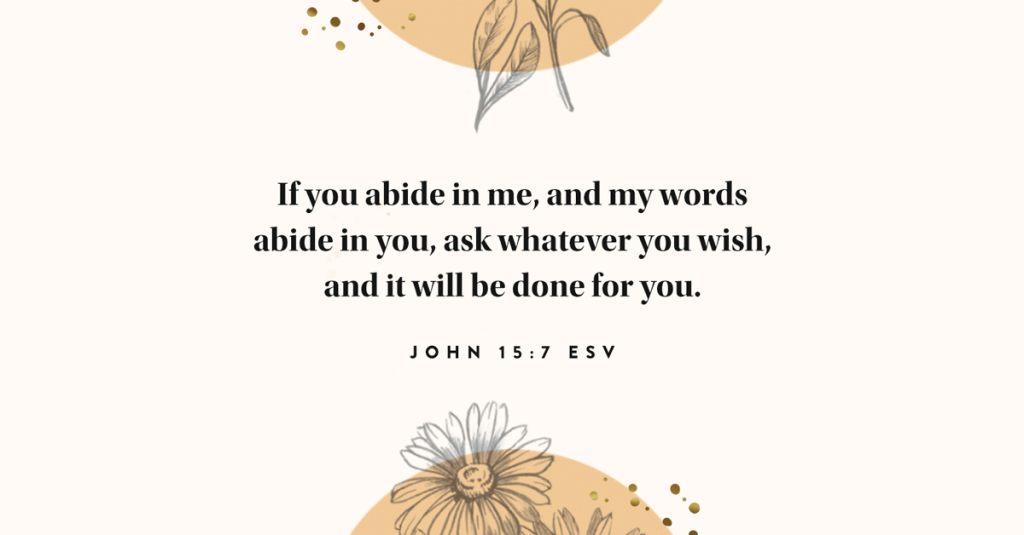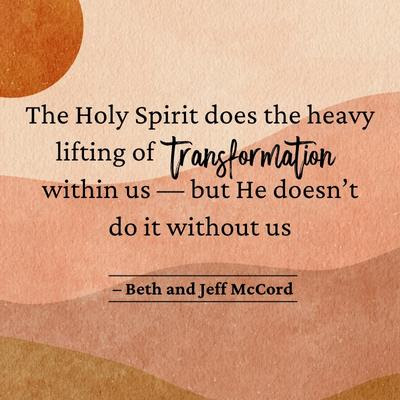


NORTH KOREA TESTIMONY
And now, compelled by the Spirit, I am going to Jerusalem, not knowing what will happen to me there. I only know that in every city the Holy Spirit warns me that prison and hardships are facing me. I consider my life worth nothing to me; my only aim is to finish the race and complete the task the Lord Jesus has given me—the task of testifying to the good news of God’s grace. Acts 20:22-24
After Gyeong Ju Son, a young woman from North Korea, gave her moving testimony at The Third Lausanne Congress on World Evangelization in Cape Town in October 2010, the 4200 participants from over 190 countries, came away stunned—many moved to tears.
Born in Pyongyang, North Korea’s capital, this petite 18-year-old is the daughter of a former high-ranking government leader—an assistant of the North Korean leader, Kim Jong-Il.
In 1998, when Gyeong Ju was at the tender age of six, her father suffered severe political persecution and the family was forced to flee to China. It was there that her parents came to know the amazing grace and love of God. After only a few months, her mother, pregnant with their second child, died of leukemia.
“It was in the midst of this family tragedy that my father joined a Bible study led by missionaries from South Korea and America, and after a time his strong desire was to become a missionary to North Korea,” she says.
In 2001 her father was reported and arrested by the Chinese police, to be sent back to North Korea, where he was sentenced to prison. Desperately crying out to God during this time, his three-year incarceration only served to strengthen his faith. After his release he returned to China and Gyeong Ju Son was reunited briefly with her father.
“Not long after he chose to return to North Korea—instead of enjoying a life of religious freedom in South Korea—to share Christ’s message of life and hope among the hopeless people of his homeland.”
In 2006 her father’s work was discovered by the North Korean government and once again he was imprisoned. Not having heard from her father again, she assumes he has been publicly executed on charges of treason and espionage. This is often the fate of confessing Christians in North Korea.
Left in China, Gyeong Ju Son was adopted for a while by the family of a young pastor, and it was their love, care, compassion and protection that made a deep impression on her. When they left for America she was given the opportunity to go to South Korea.
RESPONSE: Today I give thanks for brothers and sisters who serve Jesus at the cost of their own lives.
PRAYER: Pray today for those believers still living in North Korea and committed to evangelism.


 | How You Can Encourage Your Husband When He’s Struggling With His Faith LISA JACOBSON Lee en español |
“Therefore encourage one another and build one another up, just as you are doing.” 1 Thessalonians 5:11 (ESV)
I don’t know why I hadn’t picked up on it earlier.
One Friday evening, I looked up to see my husband walking by with his shoulders slumped and his stride too slow. He moved as if burdened by some great weight, and it was all he could do to carry it across the floor.
My heart ached to watch his heavy steps as he made his way to the other side of the room.
How did I not notice this before? My excuse is that we were caught up in such a swirl of troubles — challenges at church, a struggling child and a work deal fallen through — that I’d not stopped to realize the full effect it was having on him.
But if pressed, I’d probably have to admit I was too caught up in my own concerns of that difficult season to consider what might have been his own concerns.
I couldn’t ignore the signs any longer. Yes, we still said grace before our meals and rarely missed church on Sundays, but there was a noticeable lack of enthusiasm on my husband’s part.
Clearly, my man was not in a good place, and my heart went out to him. What can I do to bolster his spirits? To help strengthen his faith in this trying season?
Maybe you’ve asked some of these same questions and more.
So what does a wife do when her man is downcast? When he seems rather lost or wavering? Maybe he’s stopped reading his Bible or attending church. Perhaps he never did those things in the first place. And for this reason or possibly others, you’re worried about where your husband might be in his spiritual journey.
Oh, friend, few things make a married Christian woman feel more helpless than watching her husband struggle with his faith.
I’m sure you’ve tried everything — subtly placed his Bible on the bedside table, asked if he’ll go to church with you this coming Sunday or urged him to try the new men’s Bible study. But despite your best efforts, he’s shown little interest in these spiritual pursuits. Naturally, you’re anxious for him — and yet you are not as powerless as you might feel.
Although it’s true we cannot walk in faith for another person, we can still minister to our husbands in their wrestling places. We can do as 1 Thessalonians 5:11 says: “Therefore encourage one another and build one another up, just as you are doing.”
You can begin by calling out to God on your husband’s behalf. More than a basic “pray for him,” this means true supplication — crying out to the Lord to bless, heal, convict and move him. Your husband might be encouraged by knowing his wife is lifting him up, even if he is not in a place where he feels like praying for himself.
When a man is discouraged, he is often down on himself most of all. So this would be the perfect time to affirm the good you can see in your husband that he might not be able to see for himself. Express your appreciation for the everyday tasks he does for you, and remind him of those unique qualities you love about him. Instead of pointing out what he isn’t doing well, point out any positives, no matter how small.
And never underestimate the power of your faithful example in your husband’s life. An understanding smile, an encouraging word and a joyful song on your lips — even while going through trials — can have a stronger influence on him than might be immediately apparent.
You can have a tremendous impact on your husband by shining the love of Christ — sometimes quietly and other times exuberantly — in your home.
Dear heavenly Father, I want to encourage my husband in his faith. Please give me discernment and insight on what he needs from me right now — what I should say or not say, what I can do or not do. Please, oh Lord, bless, heal, convict and move him! In Jesus’ Name, Amen.
OUR FAVORITE THINGS
In her new devotional, Loving Your Husband Well: A 52-Week Devotional for the Deeper, Richer Marriage You Desire, Lisa Jacobson will help you deepen your love and relationship with the man with whom you share life’s journey. You can also pick up the companion volume, Loving Your Wife Well, for reading and discussing as a couple, or enjoy the devotionals individually. Pick up your copy of Lisa’s new devotional here!
ENGAGE
Join Lisa for more encouragement over on Club31Women.com or Facebook.
Enter to WIN your very own copy of Loving Your Husband Well by Lisa Jacobson. To celebrate this book, Lisa’s publisher will give away 5 copies! Enter to win by leaving a comment here. {We’ll randomly select 5 winners and then notify each one in the comments section by Monday, October 3, 2022.}
FOR DEEPER STUDY
Proverbs 12:25, “Anxiety in a man’s heart weighs him down, but a good word makes him glad.” (ESV)
What would encourage your husband in the heavy season he’s in right now? What does he need to hear (or maybe not hear) from you?
© 2022 by Lisa Jacobson. All rights reserved.
Proverbs 31 Ministries thanks Revell for their sponsorship of today’s devotion.
Click here to view our policy on 3rd party links.Proverbs 31 Ministries
PO Box 3189
Matthews, NC 28106
www.Proverbs31.org
Promise #271

Promise #271:
I will soon crush the evil one under your feet.
Romans 16:20 (WEB)
And the God of peace will quickly crush Satan under your feet.
The grace of our Lord Jesus Christ be with you.
In the Lord’s prayer, Jesus taught us to ask our Father to ‘deliver us from evil’. Jesus wouldn’t have told us to pray this way unless He was certain that His Father would answer this prayer.
We know that in this world, we will have trouble in life because we live in a fallen world. Hurting people hurt other people and the cause and effect of a fallen humanity causes many evil things to happen. However, that does not mean that we are in subjection to the prince of the power of air. In James 4:7, the Bible says, resist the devil and he will flee from you.
In Romans 8:37, Paul says that we are more than conquerors through Him who loved us. As Paul continues to write the book of Romans, he goes on to say in today’s promise found in Romans 16:20, that the God of peace will soon crush the evil one beneath our feet.
No matter what circumstances you are facing today, be encouraged that our God and Father will soon give us an eternal victory and crush the evil one beneath our feet! …So rest in this amazing promise and may the grace of our Lord Jesus Christ be with you. Amen.
Be Still and Be Happy
“Love is patient, love is kind. It does not envy, it does not boast, it is not proud.” — 1 Corinthians 13:4
This beautiful love verse holds so much history and meaning and deserves to be more than mere seed for wedding sermons. Paul wrote it to the Corinthian church as a direct response to the unloving they had been conducting themselves. Their living practices had become very self-centered. He was calling them to a higher standard of living and warning them against the dangers of pride.
We’re not to brag about ourselves or be arrogant. Instead, real love celebrates others and builds them up. Love shows others patience when they are struggling rather than condemning them or misusing their struggles to make us look better. Love is not envious of the success or possessions of others and instead rejoices with them and is happy for them. In essence, love cares about others in a real way and doesn’t use other people as a means to benefit ourselves.
Thank you for loving me, Lord God. Please continue to teach me to love others in a real and honest way.

Just Do It
By DaySpring

Let’s be honest, how often have we heard a significant word or felt like God gave us clear instructions about something we needed an answer for? We wrote down a plan, told a few people, prayed over it, and just knew that we would execute exactly what He said. Then the reality of implementing the plan or distractions from day-to-day life came and slowed us down. We found ourselves back in a place where we didn’t know what to do next, or even worse, we knew what to do, but for some reason, we couldn’t bring ourselves to stay consistent or follow through. Let me be the first to raise my hand and say I have been there. I found the biggest issue with not being obedient to God’s instructions is that you find yourself sacrificing so much more than He ever intended. And when we sacrifice in areas that He never intended, we no longer reap the benefits of obedience. If God gave us three tasks and we did ten, but none of them were the original three He gave us, we don’t get extra brownie points. Unfortunately, we are typically stuck spinning our wheels and feeling like we haven’t accomplished much. Today I encourage You to repent for any missed steps and ask God, “What is the next best thing You want me to do?” Ask this concerning any areas in which you have been feeling stuck. Then DO IT! as quickly as you can and then go back for the next step. God wants you to WIN, but He wants you to win HIS WAY.
Therefore, if anyone is in Christ, the new creation has come: The old has gone, the new is here! II CORINTHIANS 5:17 NIV
God, I am grateful to see light coming. I realize that it doesn’t have to happen the way I thought it would. I ask that You would help me not to be close-minded . . . but Christ-minded.
This is an excerpt from 100 Days of Living Deeply Rooted by Sopha Rush – a new devotional journal now available on DaySpring.com. Shop all books, journals, and devotions from DaySpring here.

3 Reasons to Worship God in the Barrenness (Habakkuk 3:17-18)

BIBLE VERSE OF THE DAY: Though the fig tree should not blossom, nor fruit be on the vines, the produce of the olive fail and the fields yield no food, the flock be cut off from the fold and there be no herd in the stalls, yet I will rejoice in the Lord; I will take joy in the God of my salvation. – Habakkuk 3:17-18
3 Reasons to Worship God in the Barrenness
By Jennifer Waddle
Worship is not only an expression of the soul to our loving Creator, it is also a choice. For in times of ease, we find it delightful to lift hands of praise. But in times of hardship, we struggle to even find the strength to worship.
As life sometimes takes on the form of barrenness, through empty womb or lonely heart, finding joy in the God of our salvation can be challenging. Rejoicing in the emptiness can feel counterintuitive, but it is the exact thing needed for the journey.

God is in the barrenness. We have to believe that, even when we don’t feel it. For without Him, there is no hope.
“And now, Lord, what do I wait for? My hope is in You.” Psalm 39:7
Here and now, in the midst of the “lonely,” the Lord is worthy to be praised. He is still on the throne and He is good. Above every situation, He remains steadfast and holy.
Do we believe that?
Here are 3 reasons to worship God in the barrenness.
1. God has a divine purpose for every season.
There is a foundational and divine purpose for everything we are allowed to go through in this life. That isn’t an easy truth to accept, but it is necessary for rising above the pain, enough to praise God through it.
Remember, the enemy wants to steal our praise. And in the midst of intense trial, he will pounce on our vulnerabilities and lie to us concerning God’s divine purpose. However, when we declare that God is Sovereign over every situation, we can then look upward instead of inward, and worship Him in the barrenness.
To everything, there is a season, a time for every purpose under heaven. Ecclesiastes 3:1
2. Jesus is our First Love.
I’m afraid it is part of human nature to love ourselves the most. Self-centeredness is a struggle for even the most serving of hearts. Especially when we face difficult seasons, our attention is quickly turned inward. Almost by default, we strive to make the “uncomfortable” go away.
Therefore, it is crucial to remember our “First Love” in times of barrenness. By loving God with all of our heart, mind, soul, and strength, we will still be able to worship no matter what comes.
And you shall love the Lord your God with all your heart and with all your soul and with all your mind and with all your strength. Mark 12:30 ESV
3. God will turn our mourning into dancing.
Barrenness is but a season, a painful time of yearning and wandering. But God is faithful. He is with us in it and He sees us through it. No matter how long the road seems, how dark the night is, there is joy in the morning. The Lord turns every sorrow into rejoicing and our mourning into dancing.
For I will turn their mourning to joy, will comfort them, and make them rejoice rather than sorrow. Jeremiah 31:13
Choosing to worship in times of barrenness is a beautiful and sacrificial act of love and obedience to a worthy Creator. By loving Him with our whole heart, and knowing His divine purpose exceeds our current circumstances, we will indeed dance with joy again.
This devotion was taken in part from Jennifer Waddle’s blog post, Lonely in a Crowded Room. (You can read the entire post here.)
Want more Your Daily Bible Verse? We also have a podcast! This podcast features different verses than the written devotional you just read, but carries the same commitment to a closer look at Scripture each day. You can find out more by clicking the link below!


“Why, God?” 5 Things to Remember When Natural Disasters Hit
- Beth Ann Baus
- Crosswalk.com Contributor

It happened in 2005 with Hurricane Katrina. It happened in 2011 with the tornado “Super Outbreak”. And now we’re watching it happen in Texas with Hurricane Harvey. With each natural disaster that has ravaged America’s communities, believers and nonbelievers alike have been left asking, “Why, God?”.
In the aftermath of disaster and doubt, here are 5 powerful things Beth Ann Baus invites us to remember:

1. We live in a broken world.
Slide 1 of 11
The Bible tells us that when sin entered the world, all of nature was cursed. Because of this, death is a promised component of this life and, to put it simply, bad things happen.
Before the fall of man, the weather was perfect all the time. There was no change in season, no rain or snow storms, earthquakes, tornadoes or tsunamis. Before the fall of man, everything worked in perfect harmony. Because of sin, that is no longer the case.
Photo courtesy: ©Unsplash

(See Romans 8:19-22)
Slide 2 of 11
We must accept the fact that we live in a broken world and expect that natural disasters will occur. Romans 8:19-22 tells us, “For the creation waits in eager expectation for the children of God to be revealed. For the creation was subjected to frustration, not by its own choice, but by the will of the one who subjected it, in hope that the creation itself will be liberated from its bondage to decay and brought into the freedom and glory of the children of God. We know that the whole creation has been groaning as in the pains of childbirth right up to the present time.”
We must remember this world is not our home. While natural disasters are a reality in this life, for the children of God, there will be no disasters in eternity.
Photo courtesy: ©Unsplash

2. God is sovereign.
Slide 3 of 11
We could argue whether God causes natural disasters or simply allows them to happen, but the only conclusion we can draw from Scripture is that nothing in nature happens outside of God’s providence. In Exodus, God clearly sent the plagues in Egypt. In Genesis, God sent the flood. When we read about Jonah, we see that God hurled a storm into the sea.
Photo courtesy: ©Unsplash

(See Job 37:6, Psalm 147, Amos 4, Mark 4:9)
Slide 4 of 11
Job 37:6 says, “He says to the snow, ‘Fall on the earth,’ and to the rain shower, ‘Be a mighty downpour.’” Consider Psalm 147: “He covers the sky with clouds; he supplies the earth with rain. He spreads the snow like wool and scatters the frost like ashes.” In Amos 4 God says, “I also withheld rain from you when the harvest was still three months away. I sent rain on one town, but withheld it from another. One field had rain; another had none and dried up.” Mark 4:9 tells of Jesus rebuking the wind and saying to the waves, “Quiet! Be still!” Out of obedience, the wind died down and was completely calm.
Note how these Scriptures attribute the weather – good or bad – to the direct controlling hand of God. This is frightening to many, as it makes God appear rash or untrustworthy. But the truth is quite the opposite. Which brings us to the third thing we must remember.
Photo courtesy: ©Unsplash

3. God can be trusted.
Slide 5 of 11
Many people find it easy to trust God when they focus on phrases like “God is good” or “God is love,” but we must remember also that “God is just.” This is difficult for some when faced with natural disasters in light of verses like Psalm 115:3, which says “Our God is in heaven; he does whatever pleases him,” or Isaiah 45:7, “I form the light and create darkness, I bring prosperity and create disaster; I, the Lord, do all these things.”
Photo courtesy: ©Unsplash

(See Isaiah 55:8-9)
Slide 6 of 11
We look at the world and its natural disasters and decide what is just and unjust based on our own thoughts and emotions. We look at the Bible and, rather than letting it say what it says, we interpret it as what we want it to say. But, we must remember Isaiah 55:8-9, “For my thoughts are not your thoughts, neither are your ways my ways, declares the Lord. For as the heavens are higher than the earth, so are my ways higher than your ways and my thoughts than your thoughts.”
We, who are as broken as all of nature, are the ones who can not be trusted. Our judgement is not sound. Proverbs 3:5 reminds us to “Trust in the Lord with all your heart and lean not on your own understanding.” If we can’t trust our God in all things, who then can we trust?
Photo courtesy: ©Unsplash

4. There is still joy to be had.
Slide 7 of 11
For many, surviving a natural disaster means more than losing material possessions; it means losing loved ones. Under such circumstances, it might seem difficult to experience joy while facing such devastation, but feeling joy in the face of suffering is not to deny pain. For children of God, suffering and joy go hand in hand.
Peter wrote to scattered Christians telling them, “In all this you greatly rejoice, though now for a little while you may have had to suffer grief in all kinds of trials.” (1 Peter 1:6) Paul is a great example of this also. While he didn’t face tornados, hurricanes or earthquakes, the list of his personal trials is quite extensive – you can read about it in 2 Corinthians 6:3-10. Notice his words at the end of his list of trials, “sorrowful, yet always rejoicing.”
Photo courtesy: ©Unsplash

(See Job 1:21)
Slide 8 of 11
Natural disasters remind us of several truths: life is short, we are frail, and death is certain. Sadly, we are also reminded of the countless lost souls among us. By expressing joy in the midst of crisis, Christians glorify the Lord, encourage one another, and point the lost to hope in Christ.
Perhaps our best example in suffering is found in Job 1:21. After losing material possessions, his own health, and all of his children, the cry of his heart was, “The Lord gave, and the Lord has taken away; blessed be the name of the Lord.”
Photo courtesy: ©Unsplash

5. Worse things are yet to come.
Slide 9 of 11
When we read Matthew 24:5-8, it’s clear that despite the natural disasters we face now, there are worse things to come and we must be ready. “For many will come in my name, saying, ‘I am the Christ,’ and they will lead many astray. And you will hear of wars and rumors of wars. See that you are not alarmed, for this must take place, but the end is not yet. For nation will rise against nation, and kingdom against kingdom, and there will be famines and earthquakes in various places. All these are but the beginning of the birth pains.”
This verse sums up all the points above. There are birth pains because we live in a broken world. God is sovereign and he can be trusted as he tells us to not be alarmed because these things must take place. We can glorify the Lord in our response to crises and point others to Christ. But the good news is, while there are worse things yet to come in this life, Paradise is on the horizon!
Photo courtesy: ©Unsplash

(See Isaiah 25:8-9)
Slide 10 of 11
Isaiah 25:8-9 tells us, “He will swallow up death for all time, And the Lord God will wipe tears away from all faces, and He will remove the disgrace of His people from all the earth; for the Lord has spoken. And it will be said in that day, ‘Behold, this is our God for whom we have waited that He might save us. This is the Lord for whom we have waited; Let us rejoice and be glad in His salvation.’”
Photo courtesy: ©Unsplash

Please pray with me:
Slide 11 of 11
Father God, we praise you for who you are; that you are sovereign in all things, that you are just and trustworthy, and that you love your children even though we are sinful and often doubt you when faced with tragedy. As we watch natural disasters unfold around us, and for those who have personally been touched by such devastation, help us always to rejoice in you and to point to the One who paid the price for our undeserved salvation. May the cry of our hearts ever be, “this world is not our home, come Lord Jesus, come.” Amen.
Photo courtesy: ©Unsplash
Adapted from the article by Beth Ann Baus. See the original article in full here.
See also: 7 Promises of God for When the Storms of Life Hit
Beth Ann Baus is a wife and homeschooling mom of two boys. She is a writer and blogger who pulls from her own experiences of abuse, anxiety, depression and Tourettic OCD. Beth is an advocate for women struggling with sexual sin and strives to encourage young wives and mothers by pointing them to the grace offered only by our Lord and Savior, Jesus Christ. You can read more about her at www.bethannbaus.com.



A Prayer When We Struggle to Forgive
By Rev. Kyle Norman
“Forgive as the Lord forgave you.” – Colossians 3:13
What do we do when we find it hard to forgive? How do we cope when everything in us wants to define another by the hurt they have caused? How do we forgive when we feel that the offending person simply doesn’t deserve it?
Recently, I had this question posed to me by a parishioner. Their teenage son was having a hard time forgiving the people who wounded him in the past. He had good reason to. His father was not a nice man, and his grandmother, who lived with him for the first 12 years of his life, moved away without any notice; he simply returned home from school one day, and she was gone. Both these events occurred years ago, and yet the lingering effects are tangible in his life. “He just can’t forgive,” his mother lamented.
We sometimes think forgiveness is about pretending that a hurt or an offense did not take place. “Forgive and Forget,” we say. But when deep harm is done, it stays with us. We can’t forget, and because we can’t forget, we mistakenly think that we are not able to forgive.
Forgiving someone who has wounded us is not about sweeping things under the rug, or pretending that the offense did not happen. Forgiveness is about refusing to let the hurt control our lives. The fact is, if we sit in unforgiveness, we continue to define ourselves by the hurt. We may say that we have moved on, but that wound still holds sway over us. Thinking about the person or the event causes negativity to rise within us. We hold grudges. We desire revenge. And often, a deep but vibrant bitterness takes hold.
Unforgiveness is a prison that traps us in shame, resentment, and hatred. Furthermore, the energy that it takes to hold onto those feelings eventually turn inward. They sap our strength and darken our spirits. Perhaps it is for this reason that Jesus commanded us to forgive those who have sinned against us (Matthew 6:12). Jesus commands us to forgiven, not because the offending person has earned it but because the act of forgiveness frees us. Forgiveness frees us from the burden of holding a grudge. Forgiveness frees us from the toxic bitterness that eats away at us.
In Bread for the Journey, Henri Nouwen writes, “Forgiveness allows us to claim our power and not let these events destroy us; it enables them to become events that deepen the wisdom of our hearts. Forgiveness indeed heals memory.” When we take the step to forgive another, we are the ones who get healed. We become restored.
Are you going through a time where you find it difficult to forgive? Are you harboring feelings of resentment or bitterness? Are these feelings ones that you would love to rid yourself of? Jesus doesn’t want your life to be dominated by sin, whether that is your own sin or someone else’s. These are burdens that you are not meant to carry.
What might it look like for you to stop carrying the weight of the other person’s sin? Forgiveness is about giving everything to God. We release the person and whatever they may have done into the hands of Jesus. This allows us to put away the desire for revenge or recompense. We no longer feel invested in the other’s destruction. We never overcome evil by evil; we only overcome evil by goodness, mercy, and love. This is the way of Jesus.

Let’s Pray:
Gracious and Almighty Father,
I thank you for the gift of forgiveness in my life. I recognize that your mercy and grace to me are completely unearned; they are gifts given in your steadfast love. I also know that it is because I have been forgiven that you call me to forgive.
But, Lord, I am having a hard time offering forgiveness. Ongoing feelings of pain and resentment rise within me. I want to rid myself of these feelings, but I find they stick with me. And, in the darker moments of my life, I wish that revenge and wrath be visited upon the one who hurt me. Lord, I am so tired from holding this burden. My spirit is exhausted from holding onto this grudge.
Help me to be free from these feelings of malice, anger, hatred, and bitterness. I wish to be filled with your love, joy, peace, and gentleness. So, I place before you today the person who hurt me and the hurt that they caused. I hold them before your cross as the place where you crucify all the hurts and evils of this world.
As I release the other person into your care, I ask that you come to me anew. May your Spirit heal me, restore me and transform me. May your mercy fill my memory, and your grace flow in my heart. And may you give me the bold strength to forgive; This I pray for the praise of Christ Jesus my Savior, Amen.
Photo credit: ©SalemDesign/BethanyPyle
Reverend Kyle Norman is the Rector of the Anglican Parish of Holy Cross in Calgary, Alberta, Canada. He has a doctorate in Spiritual Formation and is often asked to write or speak on the nature of the Christian community, and the role of Spiritual disciplines in Christian life. His personal blog can be found here.
Want more Your Daily Prayer? We also have a podcast! This podcast is different than the written devotional you just read, but carries the same commitment to a closer look at Scripture each day. You can find out more by clicking the link below!

Now that you’ve prayed, are you in need of someone to pray for YOU? Click the button below!

Visit iBelieve.com for more inspiring prayer content.

Toxic Masculinity: What it Is and Why It’s Harmful
- Melinda Eye Cooper
- Crosswalk.com Contributing Writer

The word toxic sounds bad and it is.
Toxic waste, toxic shock, toxic hazardous materials, toxic debts, are just a few of the things that come to mind with the mention of the word. It basically means poisonous or very harmful.
Masculinity sounds good because it is good.
Strong men are important in many ways. The strength doesn’t necessarily need to be physical, though. Character, integrity, honesty, and a gentle spirit are exceptional qualities found in a strong man.
The combination of the two words means pretty much what you might think – a man’s behavior, or attitude of entitlement, to display harmful behavior (mainly toward women).
An image comes to mind of a cartoon caveman carrying a big club with one hand and pulling a woman around by her hair with the other. It’s a terrible depiction of a man, but sadly, some men treat women in abusive ways and vice versa.
This is nothing new. We’ve always struggled with sin from the beginning of time. Even in the garden of Eden – it was easier to blame someone else instead of taking responsibility for the actions that brought all of us down. It’s easier to point a finger at someone worse than we are than to take a good look in the mirror at our own bad behavior.
One example of a man suffering from toxic masculinity in the Bible is Nabal. He’s described as surly, mean, and wicked. He hurled insults and was an abusive husband to Abigail. We don’t see specific physical violence toward her in 1 Samuel 25:1-44, but she has nothing nice to say about him when she speaks with King David.
When Abigail saw David, she quickly got off her donkey and bowed down before David with her face to the ground. She fell at his feet and said: “Pardon your servant, my lord, and let me speak to you; hear what your servant has to say. Please pay no attention, my lord, to that wicked man Nabal. He is just like his name – his name means Fool, and folly goes with him. And as for me, your servant, I did not see the men my lord sent. 1 Samuel 25:23-25
Soon after this, the LORD struck Nabal, and he died.
David is the complete opposite of Nabal, and was a man after God’s own heart. He wasn’t perfect but humble and honored God with his life through obedience.
After removing Saul, he made David their king. God testified concerning him: ‘I have found David son of Jesse, a man after my own heart; he will do everything I want him to do.’ Acts 13:22
The difference between Nabal and David is striking. God takes the life of the wicked, surly man and gives his wife to the obedient man. Something to consider regarding how God feels toward an oppressive, wicked, and selfish.
Here are three truths about toxic masculinity:
1. The root cause is not the root of the problem.
The root cause of toxic masculinity goes back to a time when men needed to use their brute physical strength for survival, dominance, and hunting. Survival of the fittest and all that. Strength was necessary to get what one wanted.
Times have changed, but some of the toxic attitudes haven’t changed. We no longer live in the stone age. Men no longer need to be aggressive or show dominance for survival. They’re no longer cavemen. Thank goodness. Nowadays, this attitude of toxic masculinity is generally learned and poisonous, just like its name.
The world needs strong men, but the root problem is human flesh.
What’s in a person’s heart eventually comes out of their mouth. When we’re around other people spewing toxic venom, it doesn’t take long for it to have an effect. Especially if we have no spiritual defense and if it’s been ingrained by our upbringing or peers.
You brood of vipers, how can you who are evil say anything good? For the mouth speaks what the heart is full of. Matthew 12:34
A person’s thoughts determine how they feel and eventually lead to the same type of behavior. When a person believes he must act a certain way to gain man points, then the world has more influence over him than the One who created him. He cares more about what people think than what God thinks. He’s been influenced by those around him and allowed them to shape his attitudes and poison his heart.
The mind governed by the flesh is hostile to God; it does not submit to God’s law, nor can it do so. Romans 8:7
2. Toxic masculinity is abusive.
It’s one thing to have a bad attitude. Everyone does at times in life.
It’s a whole other thing when destructive, toxic masculinity affects others. Some form of abuse may result. It’s extremely damaging to the one on the receiving end and completely unacceptable.
Sadly, a person in an abusive relationship with a toxic person may not even know it. They can grow accustomed to being abused, and it can feel normal. Especially if they grew up in a home where abuse was present.
Physical abuse is usually obvious. But other types of abuse, such as emotional abuse, can be tricky. We may not realize what we’ve experienced is emotional abuse. Especially if it’s the norm. We may just think something isn’t right.
If we question our relationship and whether it is abusive, it could be. We can extend grace to them as God lavished grace upon us but that doesn’t mean we continue to allow ourselves to be abused.
We can love without being involved. Seek God and help from wise others.
He will rescue them from oppression and violence, for precious is their blood in his sight. Psalm 72:14
3. Toxic masculinity reflects the heart.
A person displaying toxic behavior doesn’t realize the real problem. Maybe they don’t even think there’s anything wrong with their behavior. But the truth is their heart is the problem.
They need is a new one.
A spiritual heart transplant can only come through Jesus Christ. Surrendering to Him and deciding to stop doing things the wrong way and start doing things God’s way. True change will come through the power of the indwelling Holy Spirit. Then they will change though it may take time.
The truth is we can’t make another person stop being toxic. Only God can.
We can change ourselves and our own offensive behavior but not the behavior of others.
Sometimes, we must make hard decisions when we have a toxic person in our life. We can stop the poison from affecting us by keeping them at a distance. Allow them to work on themselves and most importantly, allow God to have His way in the toxic person’s life and that may not include our presence.
Be on your guard; stand firm in the faith; be courageous; be strong. Do everything in love. 1 Corinthians 16:13
Truth be told, we’re all a bit toxic. We’re all poisoned with sin. If it’s not one thing, it’s something else. Eventually, we’ll become familiar with what’s within us that’s slowly killing us and reach out to the only One with the true strength to heal and save us.
Jesus.
Then you will know the truth, and the truth will set you free. John 8:32
***If you are in an abusive relationship, please get help: https://www.thehotline.org/
The national domestic violence hotline hours are 24/7. Call 800-799-7233 or Text START to 88788.
Photo Credit: ©GettyImages/wildpixel
 Melinda Eye Cooper grew up in the Missouri Ozarks but lives near Nashville, Tennessee. She and her husband have three sons, two daughters-in-law, and three beautiful granddaughters – and a spunky dog named Lincoln!
Melinda Eye Cooper grew up in the Missouri Ozarks but lives near Nashville, Tennessee. She and her husband have three sons, two daughters-in-law, and three beautiful granddaughters – and a spunky dog named Lincoln!
Melinda writes articles and devotions. She also writes fiction and is currently working on a middle-grade fantasy novel. She grew up in a large family, and many of her devotions and stories are inspired from her childhood.
Visit her website here. You can follow her on Facebook here or Instagram here.
you are a reflection of God’s handiwork

Understanding and Leading Your Internal Parts
Today’s inspiration comes from:
by Beth & Jeff McCord
Editor’s note: Are you a fan of the Enneagram? It’s fascinating! More Than Your Number, a brand new book by Beth and Jeff McCord digs deeper in and helps us, through our fundamental identity in Jesus Christ, explore how God continues to redeem us from the inside out. Enjoy this excerpt!
*
Especially in moments of stress, our internal fog can obscure healthy paths before us. We often do not understand ourselves or why we do what we do. Many people live unaware of why the fog comes, how it consistently derails them, or how to humbly and healthily lead their own souls through it. Even though the same things happen to them over and over, they are always a little shocked at the negative effects of their unawareness. They feel helpless to lead themselves, often thinking that doing so is some sort of self-help nonsense. After all, Jesus is all we really need, right?
But what if Jesus wants to help us respond to the Spirit’s leading so we can align ourselves with truth? He does — and that is why when we say “lead ourselves,” we don’t mean “be our own saviors.” Only the grace found in the gospel can transform us. Even so, as Christ does this transformative work through His Spirit, He intends for the fruit of self-control, which is being divinely nurtured and matured within us by His Spirit, to spur us on toward this transformation. He is not just enacting change upon us, apart from us. Rather,
- He is transforming us through our very lives, even the resistant, stuck, or foggy parts of them.
Through His work in us, we can understand and welcome our conflicting internal emotions instead of experiencing shame or anger over them, which leads us to either reject them or react negatively to their overwhelming influence. By grace, we can instead accept, listen to, and lead the parts that make up our own internal worlds, reminding each of them of what is most true in the gospel. In other words, when we learn to become aware of and lead our internal parts, we do not bypass the work of Christ; they are integral elements of that very work.
But is this work biblical, or is it just a religious spin on a worldly idea of self-appreciation and self-help? Paul pondered this line of questioning in Romans 7:15:
I do not understand my own actions. For I do not do what I want, but I do the very thing I hate. — ESV
The New Living Translation of the first few words of this verse expresses the whole of the matter in a way all of us can relate to: “I don’t really understand myself.”
Because of Adam and Eve, we are born into fallenness. And along the way, we each choose sinfulness. These two factors contribute to our inability to clearly understand ourselves. The psalmist referred to this when he said,
My sins have overtaken me, and I cannot see. — Psalm 40:12
This state of being keeps us from “seeing” clearly in the fog around us. But we weren’t meant to stay there.
Christ is actively redeeming all things from humankind’s fallenness, and we are invited to be included in this ongoing process of redemption. This means that though we will never fully arrive on this side of the fall — that is, have complete clarity on and self-control over every internal part in every situation — we can develop patterns for welcoming and rewelcoming the ongoing work of Christ in these fallen places, even when we fall yet again.
Scripture calls this being transformed by the renewing of our minds (Romans 12:1–2). This is a present-tense process, which indicates that we will constantly, actively need to be renewed. How can this be okay? Shouldn’t we finally get it right? Remember, the heart of our Shepherd never tires of us. Especially in our foggiest moments — in our fallenness and sinfulness — He actually draws closer.

David seemed to already understand this nature of God, as well as his own lack of awareness of his internal world and its parts. He expressed his own journey into the vast, dense fog within himself by saying to God,
You formed my inward parts; You knitted me together in my mother’s womb. I praise You, for I am fearfully and wonderfully made. Wonderful are Your works; my soul knows it very well. My frame was not hidden from You, when I was being made in secret, intricately woven in the depths of the earth. — Psalm 139:13–15 ESV
If you are a Christ-follower, you are probably already familiar with this passage. Its most common modern application references the wonder and beauty of God’s formation of the trillions of coalescing variables that make up the body and brain of a precious, unborn child being developed in her mother’s womb. So many miracles happen in this environment, sometimes minute by minute. This is certainly an accurate way to apply these verses.
But we can also think of this in much broader terms than just the body or the brain. Specifically, we can also ascribe to God the unfathomable number of less-observable aspects of His creative genius. If you’re a parent, you’ve already had a front-row seat to the divine development of these other “inward parts” — that is, the completely unique characteristics, personalities, and dispositions that accompany our children at birth. Yes, most babies are blessed with the same set of internal organs and outward extremities, but each is also uniquely, “intricately woven” by God into his or her own distinctive self. We often fail to acknowledge that this weaving is more complex and miraculous than mere sinew and synapses.
- All your parts, including the unseen parts of your internal world, reflect the beautiful and gracious complexity of God’s handiwork.
Yet David didn’t just point out the fact that he had parts he didn’t understand. This was only the first step on his journey to becoming aware. He also invited God to help him see these parts accurately, as well as help them become aligned to God’s ways.
Search me, O God, and know my heart; test me and know my anxious thoughts. Point out anything in me that offends You, and lead me along the path of everlasting life. — Psalm 139:23–24 NLT
We tend to read this in a modern context and assume that David is asking God to know his “heart” as a singular thing. In our culture of extremes, this is how we see people and the world. “This guy is good, while that guy is bad.” “This viewpoint is perfect, while that viewpoint is garbage.”
But pay attention to David’s prayer: “Point out anything in me that offends You.” This speaks to the fact that David assumed there was more than one part of his heart that needed God’s interventional care. He didn’t just say, “Fix my heart in one fell swoop!” Yes, that would be great, but David seemed to know that there was more than one thing going on inside him. He also seemed to know that he could seek God’s help in learning to recognize those parts for himself, which is why he invited God to “point out” what was going on in all the parts of his internal world, even those that were repeat offenders.
We’ve already acknowledged that we all have areas of repeated offense, but discovery of these parts is not recovery from their patterns. Stepping on a scale is a very important component of beginning healthier patterns toward physical fitness, but merely weighing yourself doesn’t cause you to lose weight. There has to be more than just the knowledge of what needs to change. We must walk a continual path so change can occur consistently and incrementally.
As we learn to understand and lead our parts closer to Christ by the strength He affords us, the Holy Spirit does the heavy lifting of transformation within us — but He doesn’t do it without us. An ancient quote often attributed (though unproven) to Saint Augustine sums it up nicely:
- “Without God, I can’t. But without me, God won’t.”1
In other words, God desires relationship, and relationships require mutual participation.
Much of the “change” language Paul used in Ephesians 4:21–24 tells us that we should constantly be tending to our internal parts.
Since you have heard about Jesus and have learned the truth that comes from him, throw off your old sinful nature and your former way of life, which is corrupted by lust and deception. Instead, let the Spirit renew your thoughts and attitudes. Put on your new nature, created to be like God—truly righteous and holy. (nlt, emphasis added)
Take note of the active, present nature of these verses. “Throw off” and “put on” indicate something you are invited—even compelled by grace—to do today. Right now. In this very moment.
In moments of misalignment, if you believe you are only one thing (“I’m just an idiot,” “I have good reasons for incessantly screaming,” or the like), throwing off whatever seems “bad” leads you to condemn, shame, or ignore only one thing: yourself. This is “all or nothing” thinking.
But since you are intricately, miraculously, wonderfully woven as a whole person with multiple parts, there are elements within yourself that can be identified and shepherded when they become misaligned. You are of infinite value to your Father, and your heavenly Brother, Jesus, has not only died to redeem you but also lives to constantly intercede and advocate on your behalf. This frees you to focus on your misaligned parts not so you can condemn them, but rather so you can understand them and once again become aligned with the grace and truth of the gospel.
Welcoming Our Parts
Many people reach a point when they realize that while a part of their soul wants to fully embrace Christ’s call to continual newness in the gospel, other parts keep protesting, acting out, or otherwise going to war against them—and against God. We often end up hating these parts of our inner selves for their constant troublemaking.
This divided feeling also makes some of us feel unsettled, unsure, or ashamed—and we don’t know why we keep experiencing these same pitfalls. In fact, knowing that these derailments are coming and yet not being able to avoid them only erodes our confidence even more. Even if we know at our core that we are the Beloved Child, why is there such a disconnect between what we believe and how we react in certain situations? Why is there so much distance between what we know to be true and what we experience in our internal world?
- A variation of this quote was cited in Robert Edward Luccock, If God Be for Us: Sermons on the Gifts of the Gospel (Harper: New York, 1954), 38.
Excerpted with permission from More Than Your Number by Beth & Jeff McCord, copyright Beth McCord and Jeff McCord.
*
Your Turn
The heart of Jesus, our Shepherd, never gets tired of us, all the parts of us. He continues to draw near to us even when we fail and fall. Keep answering His call to renewal!
Words of Encouragement
Heavenly Father, thank You for being the Source of my hope. Thank You for proving Yourself reliable over and over again. Create in me the spirit and confidence that allowed Shadrach, Meshach, and Abednego to step into the fiery furnace with their hope undiminished. Let me show others what hope in You looks like. In Jesus’ name. Amen.